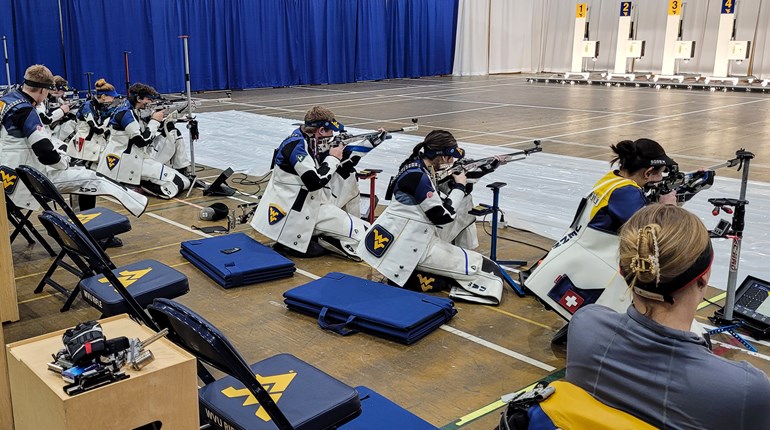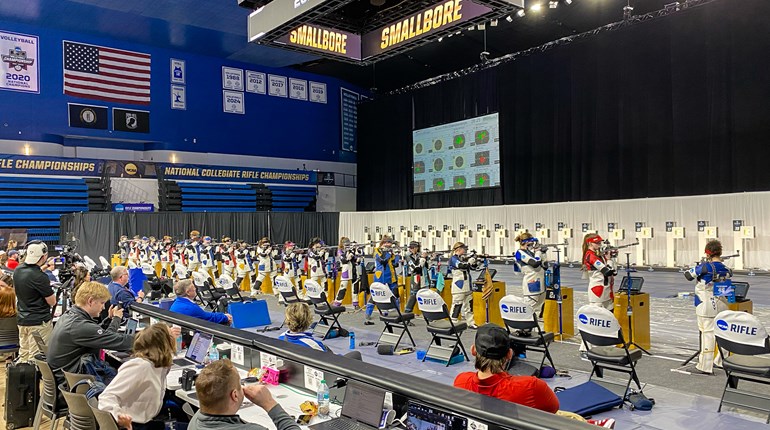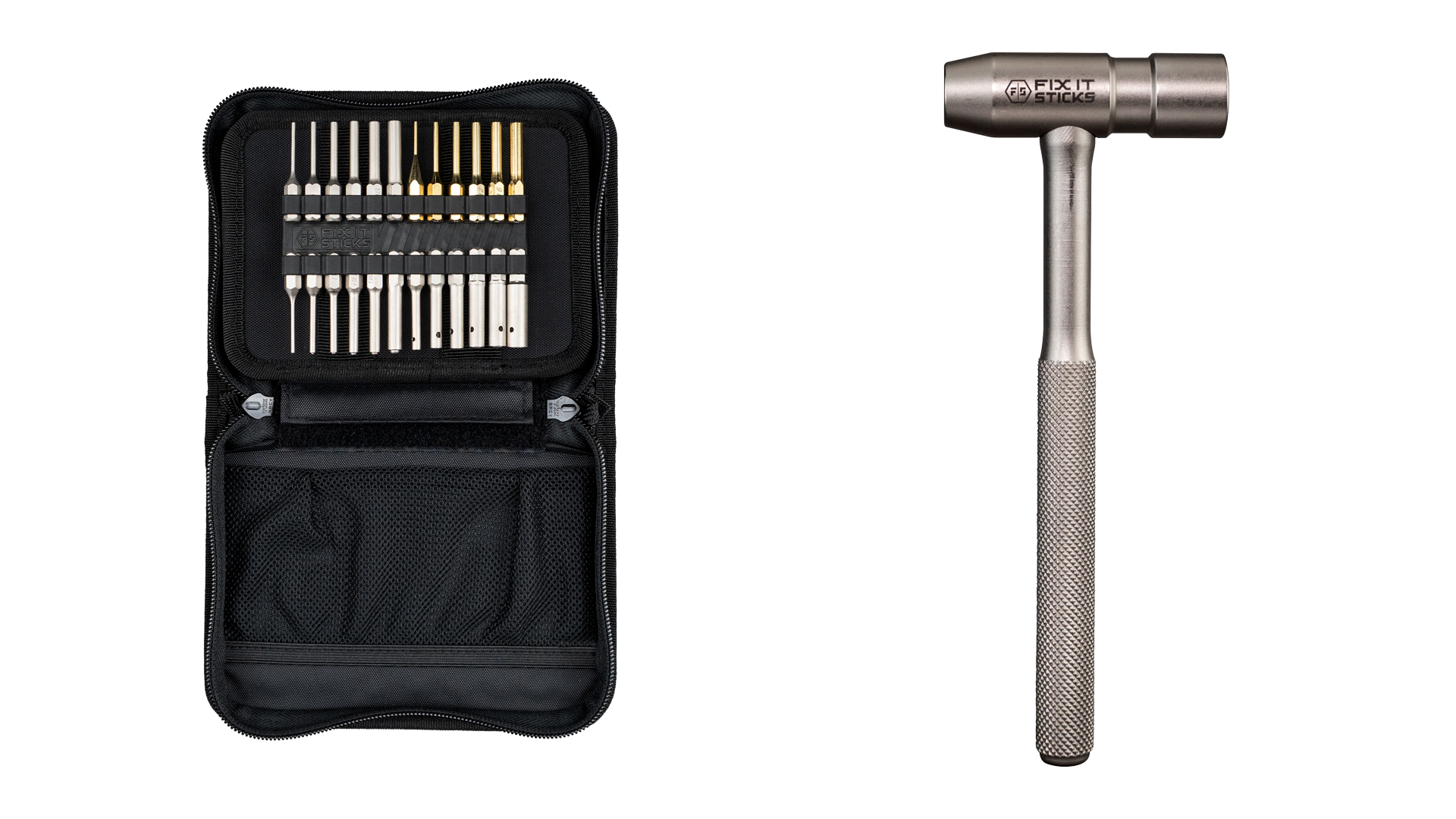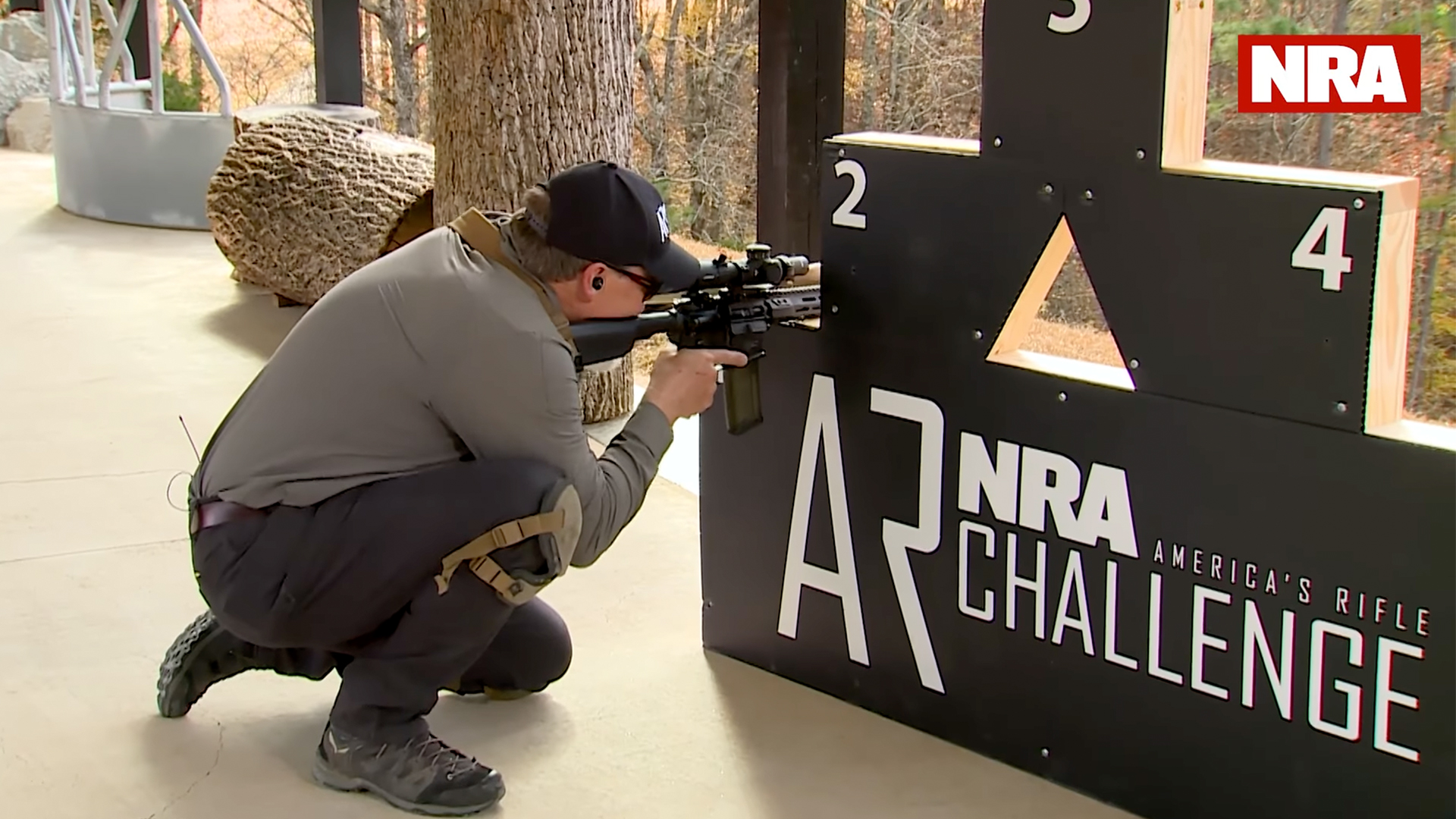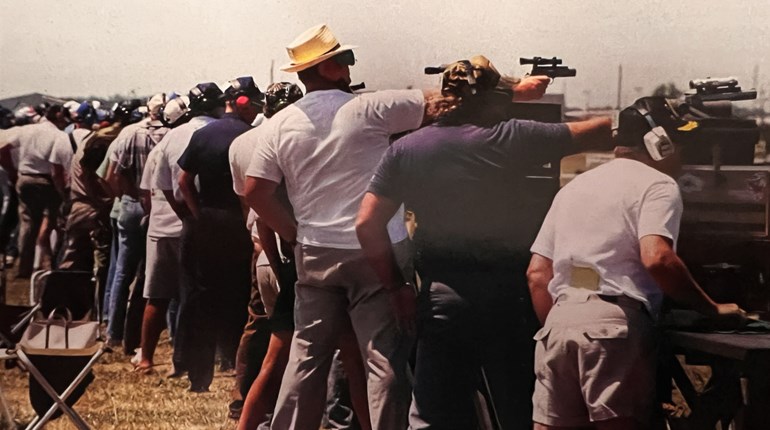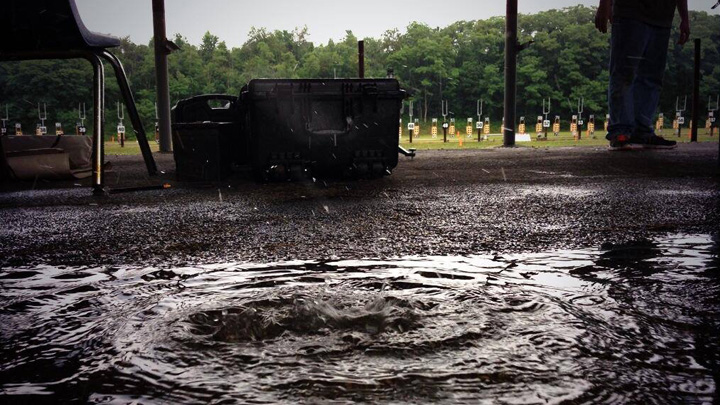
Above: An early morning thunderstorm delays the 2014 NRA National Smallbore Championships in Bristol, IN. Even with a covered range, heavy rain and lightning will bring any competitive shooting match to a screeching halt.

At an outdoor match, shooting generally continues rain or shine. As long as the rain is moderate, the competitors will be required to shoot through it. This holds true for all disciplines. However, if there is lightning or other dangerous factors like high winds, etc., the ranges are closed down.
When the storm is over, they go back on the firing line and continue the match—if there is enough daylight to complete all relays for that particular match. For a really big match like a National Championship, this can be a problem due to the number of days allotted for the phase and the number of relays set up for each day. If, because of a lengthy range closure, all relays cannot complete that particular match in the allotted time, an no extra time is available, that match is cancelled. Any aggregate that may be involved is shortened.
At some ranges, the firing line will be covered and perhaps have drainage capability via a concrete floor. This kind of facility allows shooting to continue relatively unhampered in rain, however should the wind pick up, blowing rain can become a nuisance, and the range may have standing water. So, when heading to a match and the forecast calls for rainy conditions, be sure to plan accordingly with ground cover for prone firing and most important of all—bring proper footwear.
Some companies offer waterproof targets designed especially for use in rainy weather, like Rite in the Rain and Alpha Dynamics.
Finally, be sure to maintain your situational awareness. When you first arrive at an unfamiliar range, take the time to note safe places to go in case of lightning or other dangers. It may just save your life.
See more: 6 Easy Ways To Safeguard Against Weather Calamities At Matches













